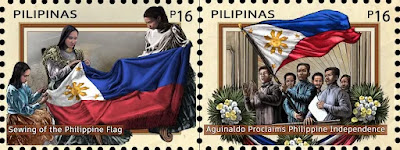National Flag Day in the Philippines is observed annually on May 28th. This day commemorates the first time the Philippine flag was flown after the victory at the Battle of Alapan in Imus, Cavite, in 1898. The Battle of Alapan was a significant event in the Philippine Revolution against Spanish colonial rule. The victorious Filipino forces, led by General Emilio Aguinaldo, hoisted the national flag for the first time, marking a pivotal moment in the country's struggle for independence.
The celebration of National Flag Day extends from May 28th to June 12th, culminating in the Philippine Independence Day. During this period, Filipinos are encouraged to display the national flag in their homes, schools, government institutions, and other public places as a show of patriotism and national pride.
Key aspects of National Flag Day include:
- Historical Significance: The day honors the heroism of the Filipino revolutionaries and the symbolic importance of the national flag in the country's history.
- Patriotic Activities: Various events and activities are held across the nation, including flag-raising ceremonies, educational programs, and cultural presentations that highlight the flag's history and significance.
- Display of the Flag: Citizens are urged to prominently display the flag to express national unity and pride. There are specific guidelines on how the flag should be displayed to show respect and honor.
The flag itself, designed by Emilio Aguinaldo, features a sun with eight rays, representing the first eight provinces that revolted against Spanish rule, and three stars, symbolizing the country's three main geographical regions: Luzon, Visayas, and Mindanao. The colors of the flag—blue, red, and white—reflect both the country's revolutionary spirit and its historical ties to the United States, which supported the Philippines' struggle for independence.
National Flag Day is an important occasion for Filipinos to reflect on their national identity, celebrate their cultural heritage, and honor the sacrifices of those who fought for the country's freedom.

No comments:
Post a Comment